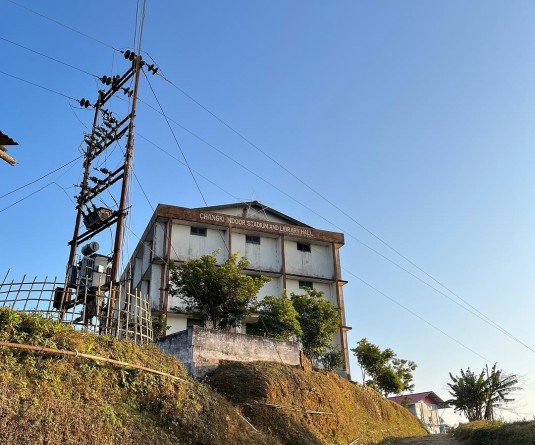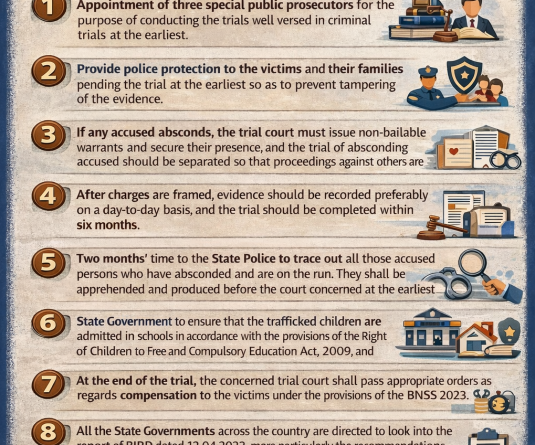
Assisi Centre celebrates Hope Day 2014 for underprivileged children
Morung Express News
Dimapur | February 22
Some little girls and a not-so-little boy donned folded up lungis and goggles on the stage of Assisi Hr. Sec. School, Dimapur, stirring up the audience with their ‘Lungi Dance.’ They and many more, who performed at the Assisi Centre for Integrated Development (ACID) organized Hope Day 2014, are from underprivileged backgrounds, most of them landing up as labour instead of in a school. Hundreds of such children, mostly from Assam or eastern Nagaland, serve as ‘domestic help’ in Naga houses. But till date, their work remains unrecognized in Nagaland as a form of child labour. There exists no State policy for child rights.
Based on the theme ‘creating space for children,’ Hope Day was organized on February 22 to reiterate the need for safety and protection of children under the directorship of Sister Therese Vanlalhruaii, who has played a key role in bringing education, hope and guidance to children domestic workers, and children of domestic workers in Nagaland. One such child, Sazia Begum, while presenting an appeal to the Nagaland State Child Protection Society (NSCPS) noted, “Many of our brothers and sisters are brought to homes for education but what do they receive? They are denied education, some are in government schools while some of them never see books but brooms and sticks. Many of them continue to suffer knowing well that our parents are poor, they have no power of knowledge, money..they have no means to defend our rights.” Hope for these children means “to reach out safety, protection, shelter, healthcare, nutrition, education, rehabilitation and a family for life.”
“This Hope Day is an attempt to give them their childhood—to raise our voice for the voiceless,” said Sister Therese in her address to the audience of children, parents and other well-wishers. She pointed out that India was one of the first signatories to the United Nations Convention on the Rights of the Child that are interdependent and indivisible, and enshrine some of the minimum inalienable rights and freedoms that a child below the age of 18 should enjoy regardless of race, gender, language, religion, opinion, origins, wealth, status and ability. Given the condition of children in India, and Nagaland, these rights remain unfulfilled dreams.
Why? Sister Milly Fernandes, Provincial Superior, Ursuline Franciscan Sister, North East, quoted Pope Francis to point to the “globalization of indifference.” “We are no longer attentive to the world in which we live; we don’t care; we don’t protect what God created for everyone, and we end up unable even to care for one another! In this globalized world, we have fallen into globalized indifference. We have become used to the suffering of others…”
The NSCPS, said its Director, Khehoto Sema, is attempting to reverse some of that through its policies and programs. “Having domestic helpers has become a fashion and ego in Nagaland. The department has asked ENPO to have all children coming from east Nagaland registered but this has not been done yet,” highlighted Sema, who was chief guest at the program. In the meantime, the NSCPS has opened 2 special homes and 8 observation homes for children across the State. 10 districts have already been sensitized on child rights and the Juvenile Justice Act—parents have been informed that children being sent out of Nagaland should be kept in the Society’s radar. “All adoptions have to be legal. All NGOs for children have to be registered or they will be closed down,” said Sema.
The Day was also attended by Chairperson of Child Welfare Committee, Dimapur, Akali Sema, and various children’s clubs and homes from Dimapur.
_________________________________
Children’s appeal to the Society Director, Nagaland State Child Protection Society:
• We appeal to you that State Child Protection Society put up big hoardings on child rights in strategic places, on highways, schools and in Church campus.
• Child rights awareness to all the colonies, Gaonbura and Chairman and forming child protection committees in all the colonies by village Gaonbura and village council through District Child Protection initiative.
• State Policy on Child Rights at the earliest.
• Let there be total ban of child labour especially in the form of domestic work, illegal adoption.
• Let there be schools properly run and manage so that our brothers and sisters are not denied of education from the warmth of their homes and loved ones.
• We appeal to you that the Government must make sure that every child in Nagaland has rights that are listed in the rights of the children.





